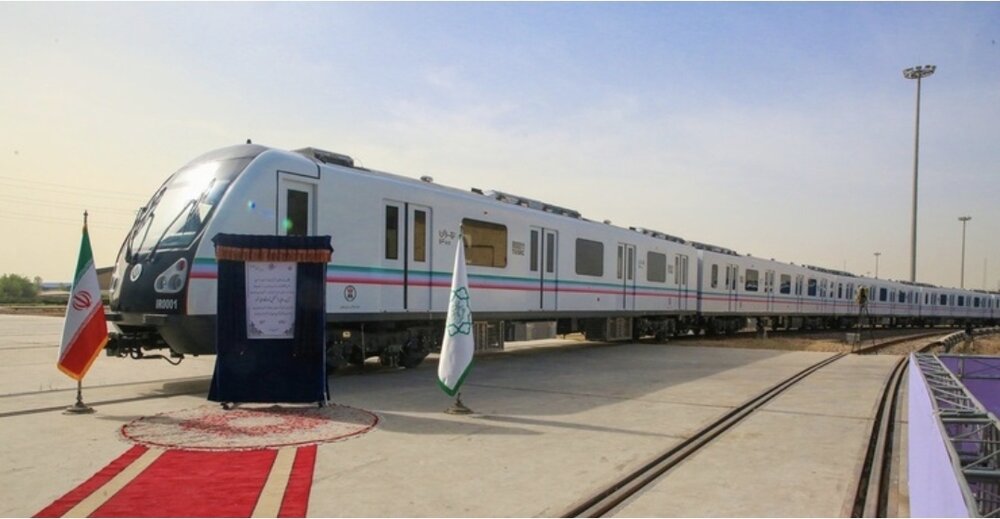National subway train unveiled

TEHRAN – The first domestically-manufactured subway train was unveiled on Thursday with President Hassan Rouhni in attendance, IRIB reported.
In June 2019, a memorandum of understanding was signed between the Vice Presidency for Science and Technology, Tehran Urban and Suburban Railway Company, and the Innovation and Prosperity Fund to complete the subway train project under an 18-month contract.
Through the project, the 25 to 30 percent share of domestic companies in designing, manufacturing, and supplying subway train parts has increased to 85 percent, Ali Emam, head of Tehran Urban and Suburban Railway Company said on March 13.
The national train was produced by 18 knowledge-based companies and based on the experience of the last 20 years in the production of three generations of subway cars, costing €12 million and causing €8 million currency saving, he stated.
One of the most important and basic projects to reduce pollution and traffic in metropolitan areas is the development of public transportation, and the metro has a special role in this regard, Pirouz Hanachi, Tehran mayor said during the inauguration ceremony.
In the capital city of Tehran, in less than 10 years, we need 5,000 subway cars to maximize the efficiency of the subway infrastructure system, he noted, adding, we operated the largest transportation project in 7 metro lines with a length of 246.8 km and 141 completed stations in Tehran, he highlighted.
By the end of the Iranian calendar year 1400 (March 2022), we have the capacity to manufacture 105 subway cars, he further emphasized.
Based on the Sixth Development Plan (2016-2021), 2,000 subway cars worth 2 billion euros must be provided to the transport system by the end of the current year, he stated.
With the mass-production of the national subway trains, 5,000 direct jobs and 10,000 indirect jobs will be generated, he added.
Metro development and air pollution reduction
Traffic congestion and air pollution pose pressing urban challenges in many developing and emerging countries.
Air pollution brings a heavy economic burden amounting to $7 million per day for the metropolis of Tehran.
According to the World Bank in 2018, the economic consequences of air pollution haunting the metropolis of Tehran equal $2.8 billion per year, the number of deaths attributed to air pollution in Iran is estimated at 12,000 per year, of which 4,000 are related to Tehran.
Metro is an important means of transportation, which bears a very heavy task of public transport. Especially in large cities, metro transport accounted for an important part of daily travel which causes Significantly less air pollution in comparison to other transport fleets.
The expansion of the subway network can create a countervailing force that could affect air quality, the improved subway coverage could lead some commuters to switch from traveling using private cars to using subways and can relieve traffic congestion and thus reduce air pollution.
FB/MG
Leave a Comment